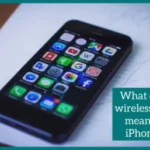In the ever-evolving digital lexicon of texting, where abbreviations and acronyms reign supreme, deciphering the latest slang can feel like navigating a linguistic labyrinth. One such enigmatic entry into this digital dictionary is “ONB.” While seemingly innocuous, its meaning carries a specific connotation that’s crucial to understand within the context of online communication.
Essentially, “ONB” is an acronym that stands for “Okay, no big deal.” This pithy phrase is deployed to convey a sense of nonchalance or acceptance when faced with news or information that might otherwise warrant a stronger reaction. Think of it as the digital equivalent of a shrug, a verbalization of indifference, packaged into three concise letters.
The appeal of “ONB” lies in its versatility and the subtle shades of meaning it can convey. It’s not merely a synonym for “okay,” it’s a nuanced response that hints at a deeper undercurrent of emotion. Let’s delve into the various scenarios where “ONB” might be employed and the subtle implications it carries.
1. Accepting Unfavorable News: A Stoic Facade
Imagine receiving a text informing you that your meticulously planned weekend getaway has been unexpectedly canceled. Instead of launching into a tirade of disappointment or venting your frustration, you respond with a simple “ONB.” In this instance, “ONB” acts as a shield, masking your true feelings behind a veneer of stoic acceptance. It’s a way of acknowledging the unwelcome news without dwelling on the negative aspects.
The subtext here might be, “I’m disappointed, but I’m not going to let this ruin my day.” It’s a subtle declaration of resilience, a refusal to be overwhelmed by minor setbacks. This is particularly useful in situations where expressing negative emotions might be perceived as overly dramatic or attention-seeking.
2. Dismissing a Minor Offense: A Gesture of Forgiveness
Picture this: a friend accidentally spills coffee on your pristine white shirt. While a momentary flash of irritation might course through you, you quickly brush it off with a casual “ONB.” Here, “ONB” serves as a token of forgiveness, indicating that you’re not harboring any resentment over the minor mishap.
It’s a way of communicating that the relationship is more important than the material damage. It diffuses the situation and prevents it from escalating into a full-blown argument. The unspoken message is, “Accidents happen, and I’m not going to make a big deal out of it.” It fosters a sense of understanding and reinforces the bond of friendship.
3. Expressing Mild Disappointment: A Subdued Lament
Consider a scenario where you’re eagerly anticipating a promotion at work, only to learn that it has been awarded to someone else. While you might be secretly crestfallen, you respond to the news with a polite “ONB.” In this context, “ONB” functions as a subdued expression of disappointment, a quiet acknowledgement of a missed opportunity.
It’s a way of maintaining professionalism and avoiding any appearance of bitterness or envy. The hidden meaning might be, “I’m a little disappointed, but I’m not going to let it affect my work ethic.” It’s a demonstration of maturity and a commitment to maintaining a positive attitude, even in the face of adversity.
4. Conveying Sarcasm: A Subtle Dig
While “ONB” is typically used to express indifference or acceptance, it can also be employed sarcastically to convey the opposite meaning. Imagine a friend boasts about achieving something trivial, and you respond with a dry “ONB.” In this instance, “ONB” becomes a thinly veiled expression of disbelief or disdain.
The subtext here is, “That’s hardly something to be proud of.” The sarcastic tone is often conveyed through the context of the conversation or the user’s established communication style. It’s a subtle way of expressing disapproval without being overtly confrontational.
5. Ending a Conversation: A Gentle Dismissal
Sometimes, “ONB” is used as a polite way to end a conversation, particularly when you’re not interested in pursuing the topic further. If someone is droning on about a subject that bores you to tears, you might interject with a casual “ONB” to signal your disinterest.
It’s a less abrasive alternative to simply ignoring the person or abruptly changing the subject. It’s a gentle way of saying, “I’ve heard enough, and I’m ready to move on.” It allows you to disengage from the conversation without being overtly rude.
In conclusion, “ONB” is a multifaceted acronym that transcends its literal definition. It’s a linguistic chameleon, adapting to different contexts and conveying a range of emotions, from stoic acceptance to subtle sarcasm. Understanding the nuances of “ONB” is essential for navigating the ever-evolving landscape of digital communication and deciphering the unspoken messages hidden within the seemingly simple texts we exchange.









Leave a Comment